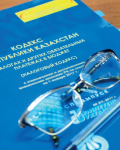Legislation
New tax code – What Should Subsoil Users Expect?
#5 (155), November 2025
On 18 July 2025, the President of the Republic of Kazakhstan signed the new Code of the Republic of Kazakhstan on Taxes and Other Mandatory Payments to the Budget (the "Tax Code"), marking the beginning of a far-reaching reform in the taxation sphere.
The Inclusion of Dividends in Customs Valuation: Analysis of Legal Practice and Practical Guidance for Importers
#4 (154), September 2025 special issue
Relevance of the Issue
In recent months, customs authorities have increasingly sought to take dividend payments into account when determining the customs value of imported goods. This issue primarily arises in transactions between related parties—for instance, between a Kazakhstani subsidiary-importer and its foreign parent company acting as the supplier. In such cases, scrutiny over the justification of the transaction price is significantly heightened.
The Mutual Agreement Procedure with a Foreign State as a Defense Mechanism in Tax Disputes
#4 (148), September 2024
According to the author's observations, since the introduction of administrative justice in Kazakhstan, the quality of tax dispute resolution has been steadily improving. This is not only reflected in the favorable court statistics for businesses and citizens, but also in the evolving status of administrative courts. Much of this progress is driven by judges adopting new, and at times quite bold, approaches to resolving longstanding legal conflicts.
Labor Relations with the Head of a Legal Entity in Kazakhstan when Changing the Composition of Participants or Shareholders
#3 (147), June 2024 special issue
In this article, we consider topical issues of legal execution of continuation or termination of labor relations with the head of a legal entity when changing the composition of participants or shareholders. We evaluate the action scenarios on implementation of the Kazakhstan legislation requirement to enter into a new employment contract or terminate labor relations with the head. The article also highlights certain legal risks for the parties to labor relations and ways to mitigate some of them.
AIFC versus National Legislation of the Republic of Kazakhstan: Incorporation and Registration of Legal Entities
#5 (143), November 2023
nvestors considering the possibility of launching their businesses in Kazakhstan have been increasingly focusing on the attractive conditions offered by the Astana International Financial Centre (the "AIFC"). Over 6 years of activities of the financial centre, more than 2,000 organizations have been successfully registered with the AIFC. In most cases, investors opt for a "private company" (the "Private Company"), an organizational legal form of a newly established legal entity. As of today, there are 1,867 registered private companies.
Customs Risks for Importers of Goods for the Karachaganak Oil and Gas Field
#4 (142), September 2023
The Karachaganak field (also known as Karachaganak) is one of the largest oil and gas fields in the world, located in the western part of Kazakhstan. This field is a joint project between the Government of the Republic of Kazakhstan and several international oil and gas companies.
Anti-Corruption Compliancein Charitable Activities
#6 (138), December 2022
As the culture of corporate and social responsibility becomes more common, many local companies have started paying special attention to charity and allocating considerable funds to provide charitable assistance each year.
Review of the Upcoming Changes in Kazakhstan Tax Code: Cancellation of Dividend Tax Exemption and Limitations on Deductions for Related Non-Resident Supplier
#5 (137), November 2022
Review of the upcoming changes in Kazakhstan Tax Code: cancellation of dividend tax exemption and limitations on deductions for related non-resident supplier
Separate Issues of Transition to Low-Carbon Economy: View of a Petroleum Lawyer
#5 (137), November 2022
Climate changes present an extraordinary global issue beyond national borders. This issue requires adoption of coordinated decisions at all levels and carrying out global cooperation to help countries’ transition to low-carbon economy.
New Environmental Code: Forewarned Is Forearmed
#2 (128), April 2021
State Accounting of Employment Agreements: Practical Tips for Employers to Work with the Unified Employment Agreements Accounting System
#6 (126), December 2020
Continued. Please see beginning in article: Yemelyanova, L. A. Unified Employment Agreements Accounting System and Other Important Changes in Labor Legislation. Petroleum, No. 4, 2020.
Reformation of the gas market in Kazakhstan: major problems and legal aspects
#5 (125), October 2020
This article examines the key problems domestic gas market in Kazakhstan faces right now and analyses, among other issues, current and future gas market designs as well as third-party access (TPA), unbundling, gas pricing and pipeline tariff setting regulation.
Unified Employment Agreements Accounting System and other Important Changes in Labor Legislation
#4 (124), September 2020
What You Should Know When Purchasing an Oil&Gas or Mining Company
#1 (121), February 2020
The sale and purchase of oil and gas or mining companies are one of the most complex transactions. There are many nuances in checking the acquired asset, obtaining transaction permits from state authorities, and taxation aspects.
Employer Awareness: Key Disabled Employment Obligations
#1 (121), February 2020It is unquestionably common knowledge that people with disabilities need special approach and special attitude as a vulnerable category of the population.
Peculiarities of FIDIC Contracts Adaptation to the Kazakh Legislation
#6 (120), December 2019
Economic globalization and increasing number of cross-border transactions bring forth the objective need for contract documents unification. In the construction domain, this is resolved through FIDIC model contracts representing standardized forms of contracts for diverse construction operations.


